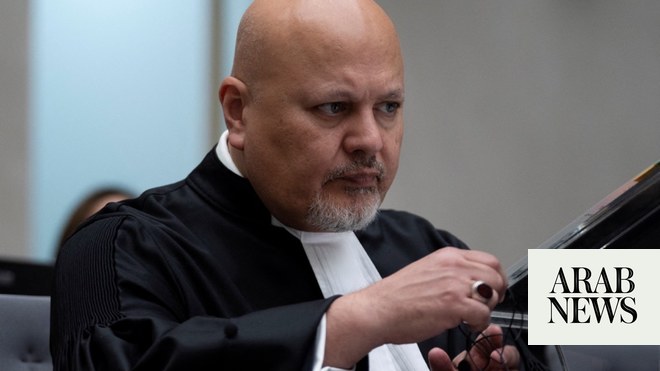
The Trump administration is launching an economic and legal offensive on the international criminal court in response to the court’s decision to open an investigation into war crimes in Afghanistan carried out by all sides, including the US.
The US will not just sanction ICC officials involved in the investigation of alleged war crimes by the US and its allies, it will also impose visa restrictions on the families of those officials. Additionally, the administration declared on Thursday that it was launching a counter-investigation into the ICC, for alleged corruption.
The secretary of state, Mike Pompeo, national security adviser, Robert O’Brien, defence secretary, Mark Esper and attorney general, William Barr, gave a presentation on the decision at the state department, but then left without taking any questions.
Barr made clear that this was the beginning of a sustained campaign against the ICC, and that Thursday’s measures were just an “important first step in holding the ICC accountable for exceeding its mandate and violating the sovereignty of the United States”.
“The US government has reason to doubt the honesty of the ICC. The Department of Justice has received substantial credible information that raises serious concerns about a long history of financial corruption and malfeasance at the highest levels of the office of the prosecutor,” Barr said.
He referred to the ICC as “little more than a political tool employed by unaccountable international elites”.
Judges at the ICC gave the green light in March to an investigation into war crimes in Afghanistan, and began an investigation into crimes by Israeli and Palestinian forces in December. In his remarks, Pompeo made clear the US sanctions were also aimed at defending Israel.
“Given Israel’s robust civilian and military legal system and strong track record of investigating and prosecuting wrongdoing by military personnel, it’s clear the ICC is only putting Israel in his crosshairs for nakedly political purposes,” Pompeo said.
Human rights activists say that the Israel Defence Forces have operated with virtual impunity in the West Bank and Gaza.
The secretary of state urged other ICC members to join its campaign against the court.
“We cannot, we will not, stand by as our people are threatened by a kangaroo court,” Pompeo said, warning US allies: “Your people could be next, especially those from Nato countries who fought terrorism in Afghanistan right alongside of us.”
David Bosco, who wrote a book on the ICC, Rough Justice: The International Criminal Court in a World of Power Politics, said: “I think this is as much directed at the looming Palestine situation as it is at the Afghanistan investigation. The executive order clearly allows for sanctions against ICC personnel who investigate US allies who have not consented to the court’s jurisdiction.”
Bosco, an associate professor at Indiana University, added: “The actual effect on the court’s Afghanistan investigation will probably not be significant. That investigation faces many logistical and evidentiary obstacles already and will take years to complete.”
Israel’s prime minister, Benjamin Netanyahu, welcomed the move, describing the Hague-based court as “politicised and obsessed with carrying out a witch-hunt against Israel and the United States.”
But the Dutch foreign minister Stef Blok said he was “very disturbed” by the news.
The American Civil Liberties Union condemned the decision, arguing that Trump was “playing directly into the hands of authoritarian regimes by intimidating judges and prosecutors committed to holding countries accountable for war crimes.
“Trump’s sanctions order against ICC personnel and their families – some of whom could be American citizens – is a dangerous display of his contempt for human rights and those working to uphold them. We are exploring all options in response,” the ACLU said.
The ICC was set up in 2002, as an attempt to extend the effort to impose international humanitarian law for war crimes and crimes against humanity begun by the tribunals for the former Yugoslavia and Rwanda.
Over 120 countries, including Washington’s closest allies in Europe, are party to the Rome statute, the founding document of the ICC. Bill Clinton signed for the US in 2000, but said the statute would not be sent to the Senate for ratification until the US had assessed the court’s operations.
George W Bush informed the UN in 2002 that the US would not join the court.












